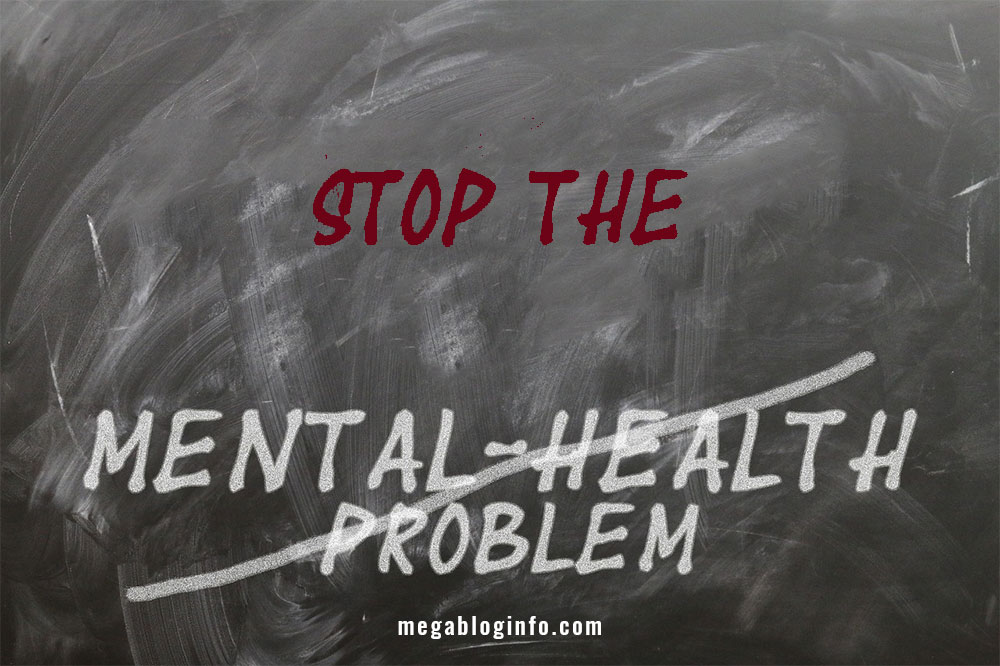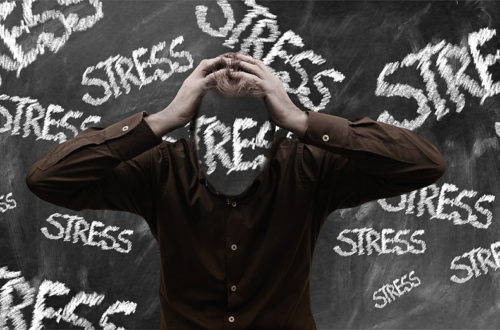
How does sleep affect your mental health? Top 7 ways
Why sleep is important for mental health?
Sleep is very important for our body as other things like eating, drinking, and breathing. Because sleep allows our bodies to repair themselves, our brains, memories and help to process the information every day. In that way, sleep affect mental health. Someone stated that:
When you go to sleep! You’re putting your energy into a bank
megabloginfo.com
Keep in mind less sleep or poor sleep can make you annoying, damage your work performance, cause anxiety, depression, and more.
According to recent research if you’re getting less than 7-hour sleep in a day that means it is true! you’re not getting enough sleep. According to the studies, lack of sleep affects mental health, work performance, relationships and also leads to bad mood problems like anger, anxiety, and depression.
Some key points about sleep affect mental health
- Sleep problem affect the mental health or cause the mental health.
- If you’re not getting sleep or poor sleep can cause the psychological state. Also, poor Sleep affect mental health like anxiety, depressions.
- If already you’ve mental problem then you can’t to get a good quality sleep. In that case you may got a insomnia problem.
- Due to these points you got an idea about the sleep affect mental health and the importance of the sleep. So that mean a proper sleep plays vital role in our lives.
- A change of noise or temperature can affect our sleep and sleep affect mental health.
- Stress or worry about anything.
Why people don’t value their sleep?
Most of the people who don’t get enough sleep don’t understand the importance of sleep. And how does sleep affect mental health? As sleep improve our learning, memories and make us relaxed happy, and clever. But think sleep means luxury time, waste of time. Even though they know after a good night’s sleep they feel better and don’t feel better when they don’t do so. During sleep actually, our body restoring and repairing itself. Without appropriate time sleeping it is not possible to do something that you want to do physically or mentally.
How much sleep you need in a day?
How much we need to sleep depends on our age. For example, children and teenagers need 9 to 10 hours of sleep a night. Mostly younger children go sleep earlier in the night and wake up early in the morning. But teenagers go to sleep later and wake in the morning later.
The average sleep time for adults is recommended 8 hours a night. But we tend to need less sleep as we get older. Sometimes if we or our children tiered whole day maybe we need more sleep as compare to these times schedules.
The relationship between sleep and intellectual health
It’s no mystery that sleep plays an essential function in good bodily and mental health. Sleep deprivation can depart you feeling irritable and exhausted inside the brief time period, but it may additionally have critical lengthy-term fitness effects properly.
Lack of sleep is connected to a number of detrimental health outcomes together with a heart disorder, kind 2 diabetes, and despair.
Some psychiatric conditions can motive sleep issues, and sleep disturbances can also exacerbate the symptoms of many intellectual situations consisting of melancholy, anxiety, and bipolar sickness.
Studies indicate that the relationship between sleep and mental health is complicated. While sleep has long been acknowledged to be a result of many psychiatric situations, greater latest views suggest that sleep can also play a causal function in each development and maintenance of different mental health issues.
in other words, sleep problems can result in modifications in mental health, but mental health conditions also can get worse troubles with sleep.
lack of sleep is only bad if you’ve to drive! or thinking, or moving—Dov-Davidoff
Loss of sleep may cause the onset of positive psychological situations, even though researchers are not absolutely sure of the underlying reasons for this. Due to this round dating among your sleep patterns and your mental state, it’s miles crucial to speak to your health practitioner if you are having trouble falling or staying asleep.
Sleep and Specific Mental Health Problems
The way that sleep and mental health are intertwined becomes even more apparent by reviewing what is known about how sleep is tied to a number of specific mental health conditions and neurodevelopmental disorders.
1 Melancholy
Insomnia and other sleep problems boom your danger of growing despair. And it really works the opposite manner around too: melancholy can also reason insomnia. Up to 90% of human beings with depression have some kind of sleep problem.
In most cases they have insomnia, but about 1 in five revels in obstructive sleep apnoea. Melancholy and seasonal affective sickness (unhappy) could make you sleep greater, stay on a mattress for longer or sleep greater frequently.
Insomnia and different sleep problems can restriction how nicely remedy for melancholy works. Additionally, they grow the severity of depressive signs and make you extra liable to thinking about suicide.
This indicates it’s actually crucial when you have depression and insomnia to view them as separate troubles and get assistance to improve your sleep.
2 Anxiety
Sleep problems affect up to 75% of individuals who experience generalized anxiety disease. To a lesser volume, in addition, they affect humans with different anxiety disorders, such as panic disorder, obsessive-compulsive ailment, and phobias.

Anxiety can motive racing or repetitive thoughts, and issues that maintain your consciousness. You could also have panic assaults even as you’re trying to sleep. Insomnia may also be a threat aspect for growing an anxiety disorder, however now not as a good deal as it’s miles for predominant depression.
However, insomnia could make the signs of anxiety problems worse or make it harder to recover. For those motives, if you have any form of tension disease and you’re having problems together with your sleep get assistance to enhance it.
3 PTSDand trauma
Sleep disturbances have an effect on as much as ninety% of human beings experiencing PTSD. In case you’ve long gone thru a trauma, this can motive flashbacks, nightmares, or night terrors that disturb your sleep. You would possibly experience unsafe or uncomfortable in bed or in the dark.
4 Bipolar ailment
Between 70–ninety 9% of humans with bipolar ailment enjoy insomnia or sleep problems throughout a manic episode. Mania often reasons emotions of strength and elation, so that you won’t experience worn-out or want to sleep.
A racing mind also can hold you wide awake and reason insomnia. In bipolar despair, but, many people sleep excessively (hypersomnia), at the same time as others may additionally enjoy insomnia or restless sleep.
A majority (70%) of human beings with bipolar sickness also record sleep disturbance between mood episodes. Speak to your healthcare company approximately your sleep and get assistance to discover ways to control it nicely.
5 ADHD
Sleep disturbances are not unusual across every age of those who experience ADHD. Both teens and adults with ADHD have more sleep disturbance than people without ADHD. Studies have located up to 65% of adults with ADHD revel in insomnia.
Numerous sleep problems affect as much as half of the kids with ADHD. Traditional troubles consist of issues falling asleep, slumbering for a shorter time, and stressed sleep. The signs and symptoms of ADHD and snoozing difficulties overlap so it can be tough to tease them aside.
About 1 in 4 children with ADHD have sleep-disordered breathing and approximately 1 in three have restless legs syndrome. Kids with those sleep problems may grow to be hyperactive, inattentive, and emotionally volatile, even when they do now not meet the diagnostic criteria for ADHD.
6 Psychosis
Paranoia and psychosis may also make it hard to sleep. You can hear voices, or see belongings you locate frightening or stressful. Talk to your healthcare company if that is going on for you.
7 Narcolepsy
Narcolepsy is a disease that causes sudden sleep at any time or in unappropriated time sleep. It is because of the brain’s unable to manage your sleeping and waking time patterns. If someone has narcolepsy he/she feel sleepy the whole day can fall asleep on the spot. That can be a risk because sometimes we’re driving, at working place, talking with others. That can be changed by contacting a doctor or changing your daily life routine like doing exercise, diet plan, and managing your sleep routine. Otherwise, sleep can affect mental health. No doubt work is essential but self-care is the first priority.

How to improve our sleep?
- Make a relaxing and regular time for the sleep. That will make you unwind and transfer a signal to your brain it’s time to go to sleep. Keep in mind you’ll need to make regular routine in your life.
- Make comfortable room for sleeping like grateful environment, dark bedroom, generally make room easier to sleep so that you can fall asleep comfortable.
- Go to bed and wake up early in the morning on each day.
- Do exercise regularly but keep in mind to avoid the exercise sleep time.
- Avoid from alcohol and caffeine before going to bed because that can sleep affect mental health as well.
- Avoid from screen at evening or night time because that can affect negative on our sleep and mental health. E.g. excessive watching TV, social media, news and games can affect on our brain and metal health.
- In case you can’t sleep don’t worry all about it. Get up and start reading, listening music until you feel sleepy.
How are sleep troubles dealt with?
In case your sleep is disturbed, sleep hygiene strategies along with the ones listed below will assist enhance your sleep. However, if these don’t work for you, you may have developed a sleep disorder, together with insomnia.
If you have a mental fitness situation, you want to deal with insomnia as a separate circumstance.
Communicate to a counselor or therapist, ideally one who specializes in sleep problems. They will let you address any underlying problems contributing to your mental health circumstance, including trauma.
Final thoughts
All we need is a good sleep and the right sleep for a healthy lifestyle. For the adult’s average sleep time is recommended 8 hours, children and teenagers 9 to 10 hours in a night. Lack of sleep affects our mental health and can cause many diseases like depression, anxiety, ADHD, psychosis, narcolepsy. So that is important and vital to note sleep affects mental health. We should take care of it.






